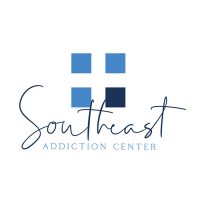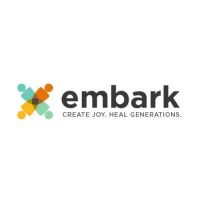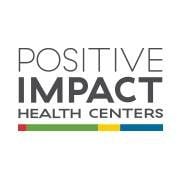Medlock Bridge Counseling Center
Drug Rehab Center in Duluth, Georgia
- Mental Health
Medlock Bridge Counseling Center is an evidence-based outpatient treatment facility in Duluth, Georgia, offering a range of services and programs to help individuals and families struggling with addiction achieve lasting recovery and improved well-being.
Multiple patients have reported Medlock Bridge Counseling Center as permanently closed.
Research other rehabs in Duluth, Georgia, or get help finding an open facility.
Our experts will find you an alternative facility.
(888) 674-0062 24/7 Free, Confidential, Expert HotlineAbout Medlock Bridge Counseling Center in Georgia
Medlock Bridge Counseling Center is a private, outpatient treatment facility dedicated to providing counseling, therapy, and support for individuals and families struggling with addiction, substance abuse, and related concerns. Located in Duluth, Georgia, the facility offers a caring and supportive environment for individuals seeking help for a range of issues. Medlock Bridge Counseling Center’s approach to care is based on evidence-based treatment models and is designed to help individuals achieve lasting recovery and improved well-being.
Medlock Bridge Counseling Center provides a wide array of services and programs aimed at helping individuals and families better understand and address their issues with addiction. This includes focused therapy sessions, support groups, and educational workshops, as well as intensive treatment options such as residential rehabilitation and detoxification services. In addition, the center offers family therapy and counseling, addiction-related medication management, holistic care and alternative therapies to supplement recovery, and much more.
The team at Medlock Bridge Counseling Center is comprised of highly trained professionals, and the facility is accredited by The Joint Commission, licensed by the Georgia Composite Board of Professional Counselors, and has received awards from the American Counseling Association and the Georgia Association for Marriage and Family Therapy. In addition, the center offers a range of additional services and supports to ensure the best possible outcomes for those seeking treatment, such as clinical assessments and ongoing case management services.
Genders
Ages
Modality
Additional
Conditions and Issues Treated
Levels of Care Offered
This center offers a variety of custom treatment tailored to individual recovery. Currently available are Outpatient, Residential, with additional therapies available as listed below.
Alcohol or drug addiction, or co-occurring disorders, are treated in an outpatient program. The patient must attend therapy and other programs at the facility but can return home each night.
Outpatient treatment allows recovering addicts to live at home while receiving addiction treatment. Outpatients can attend group sessions for a few hours per week. Outpatients may also continue to work full time and study/attend school without interruption if they choose.
Residential treatment programs are those that offer housing and meals in addition to substance abuse treatment. Rehab facilities that offer residential treatment allow patients to focus solely on recovery, in an environment totally separate from their lives. Some rehab centers specialize in short-term residential treatment (a few days to a week or two), while others solely provide treatment on a long-term basis (several weeks to months). Some offer both, and tailor treatment to the patient’s individual requirements.
Therapies & Programs
Different people react differently to various treatment options. Some drug rehabilitation centers offer individualized treatment that caters to the specific needs of a drug addict. The best treatment option varies on an individual depending on the type of drug abused, life history, medical condition of the person, social circumstances, and the environment they live in now.
When a person enters drug rehab, they usually have anti-drug associations such as withdrawal symptoms, stress, cravings, etc. The first step of drug rehab is to detoxify the body from any residual substances in it. Drug rehabilitation centers usually employ trained medical professionals to help in this process. Usually, the initial detoxification lasts for five days, where the person is monitored under close supervision.
Couples therapy is a treatment method used to help couples in which at least one member of the couple has a drug addiction. The treatment is designed to help the couple strengthen their relationship to minimize the effects of drug addiction on their lives and promote healthy communication between them.
Couples therapy can be used whether the addicted partner is using drugs or in recovery. It helps the couple create healthy communication and coping skills to minimize the problem-solving abilities of one partner, which can then be directed at solving issues related to their addiction. It also helps couples address problems that may be related to drug addiction. Couples therapy can help couples feel like a team and not feel like their partner is the problem.
Couples therapy is very challenging for both the drug addict and their partner. It requires an intense commitment between the two individuals to participate in the sessions and the homework assigned between sessions.
An additional benefit of couples therapy is that it can help make other types of treatment, such as 12-step programs, more effective.
Family therapy sessions typically involve the addict and their family members. During these sessions, a therapist will work with everyone involved to help them understand addiction and find healthy ways of coping without substance abuse.
Some addicts might feel embarrassed about their substance abuse problems. By encouraging family members to attend these sessions, therapists can show addicts that they’re not alone in dealing with addiction. Therapists can also work with family members to help them understand addiction and learn how to offer support and encouragement to their loved one as they deal with substance abuse issues.
Trauma therapy is a form of therapy used to help people process and understand past traumas. This can help struggling addicts, as many people turn to drugs or alcohol to mask the pain of their past. Trauma therapy can be done in several ways, such as through visualization, discussion, and writing down thoughts and feelings. The goal is to help the individual understand why they are having problems coping with certain situations and changing how they think and react to things. This is often done in tandem with other therapies to treat the underlying issues associated with addiction.
The idea behind trauma therapy is that while some people can experience traumatic events and not have lasting psychiatric symptoms, many others will. In these cases, memories get hidden from consciousness but continue to influence how the person processes and copes with things in their life. They may avoid situations that resemble what happened or become suddenly angry or irritated to a situation that reminds them of a past event. With the help of a therapist, people can go back over memories and experiences. This helps them understand why they are having problems coping with certain situations and changing how they think and react to things.
Payment Options Accepted
For specific insurance or payment methods please contact us.
Additional Details
Specifics, location, and helpful extra information.
Duluth, Georgia 30097 Phone Number(770) 495-6339 Meta DetailsUpdated November 25, 2023
Staff Verified
Medlock Bridge Counseling Center Patient Reviews
There are no reviews yet. Be the first one to write one.
Duluth, Georgia Addiction Information
Prescription opioid use has caused a large increase in the total amount of overdoses in Georgia. Almost 12% of the Georgia population uses illicit drugs each year, and slightly over 3.5% also abuses alcohol at the same time. This does not include those who binge-drink at least once a month, which includes 20% of all Georgians.
Treatment in Nearby Cities
- Woodstock, GA (19.7 mi.)
- Sandersville, GA (107.2 mi.)
- Denver, GA (80.6 mi.)
- Fort Oglethorpe, GA (88.4 mi.)
- Gainesville, GA (28.4 mi.)
Centers near Medlock Bridge Counseling Center




The facility name, logo and brand are the property and registered trademarks of Medlock Bridge Counseling Center, and are being used for identification and informational purposes only. Use of these names, logos and brands shall not imply endorsement. RehabNow.org is not affiliated with or sponsored by Medlock Bridge Counseling Center.

